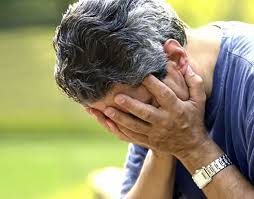Years ago, 1997 to be exact, I was thinking about writing an article for a lawyer’s magazine about my experiences with depression while practicing law. I had lunch with a good friend of mine, Bob, who at that time worked in a large litigation firm in New York City. Since then, Bob has become a federal judge and remains a dear friend.
After we had ordered, I told Bob about my idea to write the article. He sat quietly and listened, looking down at his salad as I spoke. Finally, he said, “Dan, this is an awful idea. While noble, why would you expose yourself to the insults some people are going to hurl your way.” We spoke at length and I finally told my dear friend that I was going to write the article anyway.
For the first few years after that initial talk, Bob would call me regularly and check in, “How’s it going, Dan? Is everything all right?” I so appreciated Bob’s loving concern. More importantly, however, something began to change in our relationship. Bob eventually disclosed to me that he had had a episode of major depression some years ago and had tried to commit suicide.
It seems to me that my willingness to speak frankly about my depression gave Bob permission to speak about his.
Unfortunately, talking about depression is not easy for most men. They have lots of trouble coming to terms with depression, even when they get treatment. All the more so if they’re a lawyer.
Lawyers aren’t supposed to have problems; we’re supposed to fix them. Most male lawyers I know would rather drop dead than admit that they have problem with depression. I guess the exception to this observation is when the wheels have fallen off for them. Then, and only then, do they recognize (hopefully) that they are suffering from depression and the toll that it is taking on their lives. The consequences for failing to recognize this basic fact can be serious (loss of productivity at work, sleep problems, etc.) or fatal (middle aged lawyers commit suicide at twice the rate of the national average).
Psychologist, Terrance Real, the author of the book, I Don’t Want to Talk About It: Overcoming the Secret Legacy of Male Depression, makes the observation that we don’t think of men as depressed. This is so because what we are really thinking about is “overt” depression and more women show signs of that – weeping, a willingness to discuss painful feelings, etc. Men suffer from “covert” depression that expresses itself in addiction, isolation, workaholism, isolation and increased irritability.
“Men are just as feelingful, just as relational, just as connected, just as dependent, just as needy, as women are. Men have been coerced since childhood to forego these relational qualities and skills and squeeze their sense of membership and self-esteem through performance. Girls are taught to filter their sense of self-worth through connection to others, and boys are taught to filter their sense of self-worth through performance. That’s a vulnerable foundation for one’s self-worth,” notes Real.
The excellent website, Men Get Depression, says there are three distinctive signs of male depression:
Pain. Depression may show up as physical signs like constant headaches, stomach problems, or pain that doesn’t seem to be from other causes or that doesn’t respond to normal treatments.
Risk Taking. Sometimes, depressed men will start taking risks like dangerous sports, compulsive gambling, reckless driving, and casual sex.
Anger. Anger can show itself in different ways like road rage, having a short temper, being easily upset by criticism, and even violence.
So often, the first symptom that male lawyers notice that they are slipping is in the performance department. One of the symptoms of clinical depression is difficulty concentrating. This leads to problems in getting work out the door. They may try to hide that their work is slipping – ask for extensions, take much longer to do tasks that were simple and routine in the past. If the problem doesn’t go away, some will seek out help – usually through their family doctor (who distribute 80% of the prescriptions in this country for antidepressant medications). Some will go the extra step of seeing a therapist that they can talk with about their problems.
My therapist used to liken my depression to a caveman camping out of his cave. It took a lot to coax me out of there. Men need to come out of their caves into the light of day where the colors are brighter, others can help them and they can get better.










